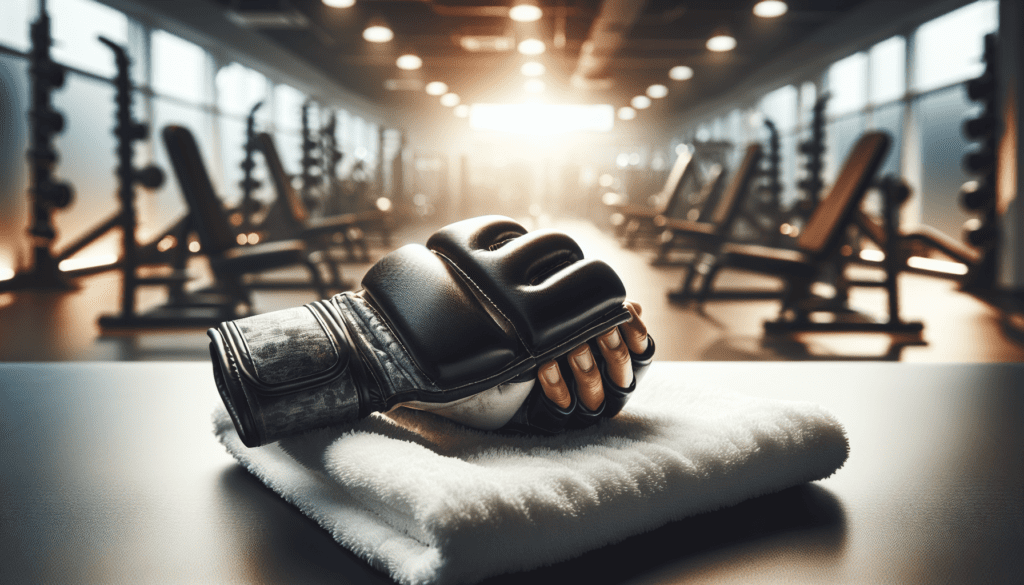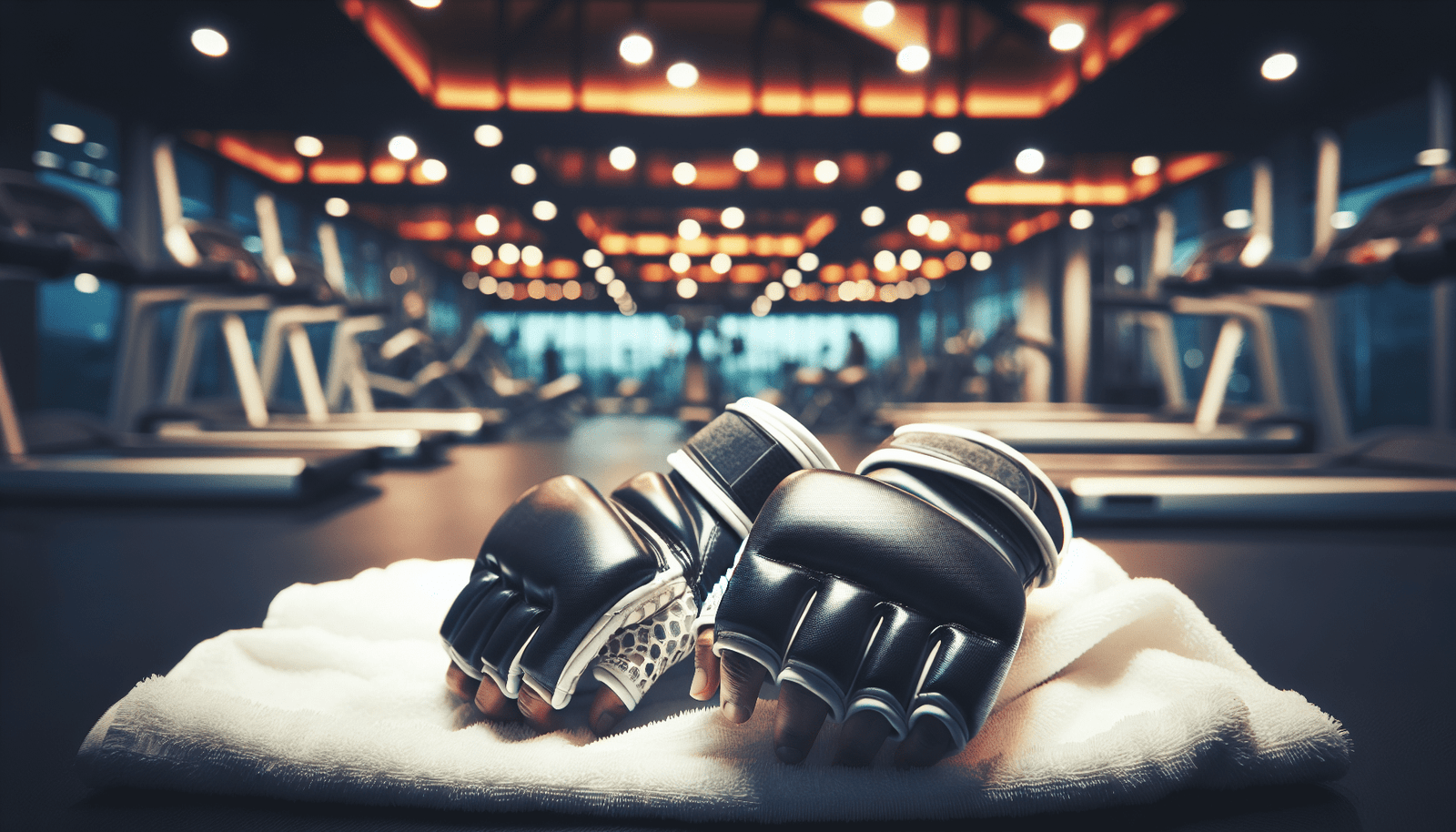Are you feeling the weight of grueling MMA training sessions starting to take a toll on your body and mind? In “How To Prevent Burnout In MMA Training,” you’ll find practical tips and transformative strategies designed to keep your passion ignited and your energy levels high. From balancing intensity and recovery to incorporating mental health practices, this guide will help you maintain peak performance in the ring while enjoying every step of your journey. Keep reading to discover how to stay motivated and avoid the pitfall of burnout, ensuring a long, successful MMA career. Have you ever felt completely drained or unmotivated midway through your MMA training regimen? Perhaps the joy and enthusiasm you initially felt has significantly waned, leaving you feeling like you’re running on empty. Burnout is a real challenge that can knock even the most dedicated athletes off their game. But don’t worry; there are effective strategies to help you prevent burnout and keep your MMA training not only productive but also enjoyable.

Understanding Burnout in MMA Training
What Is Burnout?
Burnout isn’t just feeling tired after a rough workout; it’s a state of emotional, physical, and mental exhaustion caused by prolonged and excessive stress. It can make you lose all enthusiasm for training, affect your performance, and even lead to injuries because of overtraining.
Symptoms of Burnout
Recognizing burnout is half the battle. Here are some common symptoms:
- Chronic Fatigue: Feeling tired all the time, even after a good night’s sleep.
- Decreased Performance: Noticing a decline in your skill level or physical capabilities.
- Mood Changes: Feeling irritable, restless, or even depressed.
- Loss of Motivation: Losing the excitement and drive you once had.
- Increased Incidences of Injury: More frequent injuries, especially minor ones that shouldn’t happen as often.
Why MMA Athletes Are Prone to Burnout
MMA training is intense and multifaceted. It involves striking, grappling, strength training, endurance drills, and mental preparation. With such a variety of physical and mental demands, it’s easy to see why burnout can become an issue. The constant pressure to improve and push beyond limits sets the stage for potential burnout if not managed correctly.
Setting Realistic Goals and Expectations
Define Clear, Achievable Goals
Setting goals is essential, but they need to be realistic. Ambitious goals are great for motivation, but unattainable ones can lead to frustration and burnout. Break down your big goals into smaller, manageable milestones that allow you to feel a sense of accomplishment along the way.
Focus on Progress, Not Perfection
It’s important to remember that progress is a journey. You don’t have to be perfect in every drill or match. Celebrate small wins and acknowledge your improvements, no matter how minor they may seem.
Balance Short-Term and Long-Term Goals
For sustained motivation, it’s helpful to have both short-term and long-term goals. Short-term goals keep you engaged and provide immediate results, while long-term goals give you something substantial to work towards.
Structuring Your Training Plan
Periodization Training
Periodization involves breaking your training into several phases to prevent overtraining. Each phase focuses on different goals, such as building strength, improving speed, or honing specific techniques. This structured approach can help you manage fatigue and maintain peak performance.
Incorporate Rest and Recovery
Recovery is critical for preventing burnout. Ensure that you integrate rest days and lighter training sessions into your schedule. Recovery doesn’t just mean taking a day off; it can also involve activities like yoga, stretching, or light cardio to promote recovery.
Cross-Training
Diversifying your workouts by incorporating activities like swimming, cycling, or even other martial arts can help prevent monotony and reduce the risk of overuse injuries. Cross-training can also provide a mental break from your regular routine.
Nutritional Strategies
Eating for Energy
Nutrition plays a vital role in your performance and overall well-being. Eating a balanced diet that includes carbohydrates, proteins, and fats can give you the energy you need to train effectively.
| Nutrient | Sources | Benefits |
|---|---|---|
| Carbohydrates | Whole grains, fruits, vegetables | Provides energy for high-intensity training |
| Proteins | Lean meats, fish, beans, legumes | Essential for muscle repair and growth |
| Fats | Nuts, seeds, avocados, olive oil | Supports hormone production and brain health |
Staying Hydrated
Dehydration can significantly impact your performance and contribute to fatigue. Ensure you’re drinking enough water before, during, and after training. Depending on the intensity and duration of your workouts, electrolyte supplements might also be beneficial.
Supplements
While you should aim to get most of your nutrients from a balanced diet, certain supplements can be helpful. Consult with a nutritionist or a healthcare provider to find out which supplements might be right for you. Common choices include protein powders, BCAAs, and multivitamins.

Mental Conditioning
Mindfulness and Meditation
Practicing mindfulness and meditation can help you manage stress and maintain focus. Techniques like deep breathing and visualization can make a big difference in how you handle the pressures of training and competition.
Mental Resilience
Building mental toughness is just as important as physical conditioning in MMA. Techniques such as positive self-talk, setting process-oriented goals, and maintaining a growth mindset can enhance your mental resilience.
Seeking Professional Help
Don’t hesitate to seek the help of a sports psychologist or mental health professional. They can provide you with personalized strategies and coping mechanisms to deal with the unique stresses of MMA training.
Social Support Systems
Team and Coaching Support
A supportive team and knowledgeable coaches are invaluable. Not only can they offer technical advice, but their encouragement and support can be crucial during tough times.
Family and Friends
Your family and friends can also serve as a strong support network. They can help you maintain a healthy work-life balance and provide a much-needed emotional outlet.
Community and Collaboration
Engage with the MMA community through forums, social media, or local clubs. Sharing experiences and advice can help you feel connected and less isolated in your journey.
Monitoring and Adjusting Your Routine
Self-Assessment
Regularly assess your mental and physical condition. Keep a training journal to log how you’re feeling, any physical ailments, or changes in performance. This can help you identify patterns or potential issues early on.
Regular Check-Ins with Coaches
Stay in close communication with your coaches. Regular check-ins can provide valuable feedback and adjustments to your training plan. Coaches can offer an external perspective that you might not have considered.
Flexibility in Training
Be willing to adjust your training plan as needed. Flexibility is key to avoiding burnout. If you’re feeling particularly exhausted, it’s okay to take a step back and have a lighter training day or even take a day off.
Dealing with Setbacks
Accepting and Learning from Injuries
Injuries are often unavoidable in high-intensity sports like MMA. The key is to accept them, learn from them, and focus on recovery. This might mean working on aspects of your game that don’t aggravate your injury or developing new skills while you heal.
Embracing Failure as a Learning Opportunity
Failure is part of the learning process. Instead of seeing a poor performance or a lost match as a failure, view it as an opportunity for growth and improvement. Reflect on what went wrong and what you can do better next time.
Maintaining Positivity
Maintaining a positive outlook can greatly influence your mental and physical well-being. Remember why you started your MMA journey in the first place and focus on the joys and successes, both big and small.
Utilizing Resources
Educational Materials
Books, articles, and online courses can be great resources to deepen your knowledge and understanding of MMA. Staying educated can help keep you motivated and improve your training techniques.
Training Equipment
Investing in quality training equipment can make your sessions more effective and enjoyable. Whether it’s gloves, mats, or supportive gear, having the right tools can enhance your performance and comfort.
Professional Training Programs
If you’re finding it hard to manage your training and prevent burnout on your own, consider joining a professionally designed training program. These programs often offer a balanced approach incorporating various training, recovery, and nutritional strategies.
Conclusion
Preventing burnout in MMA training requires a holistic approach that takes into account your goals, training plan, nutrition, mental health, and support systems. By integrating these strategies into your routine, you can maintain your motivation, performance, and overall well-being. Remember, the journey is just as important as the destination. Take the necessary steps to enjoy every part of it, both in and out of the ring.

